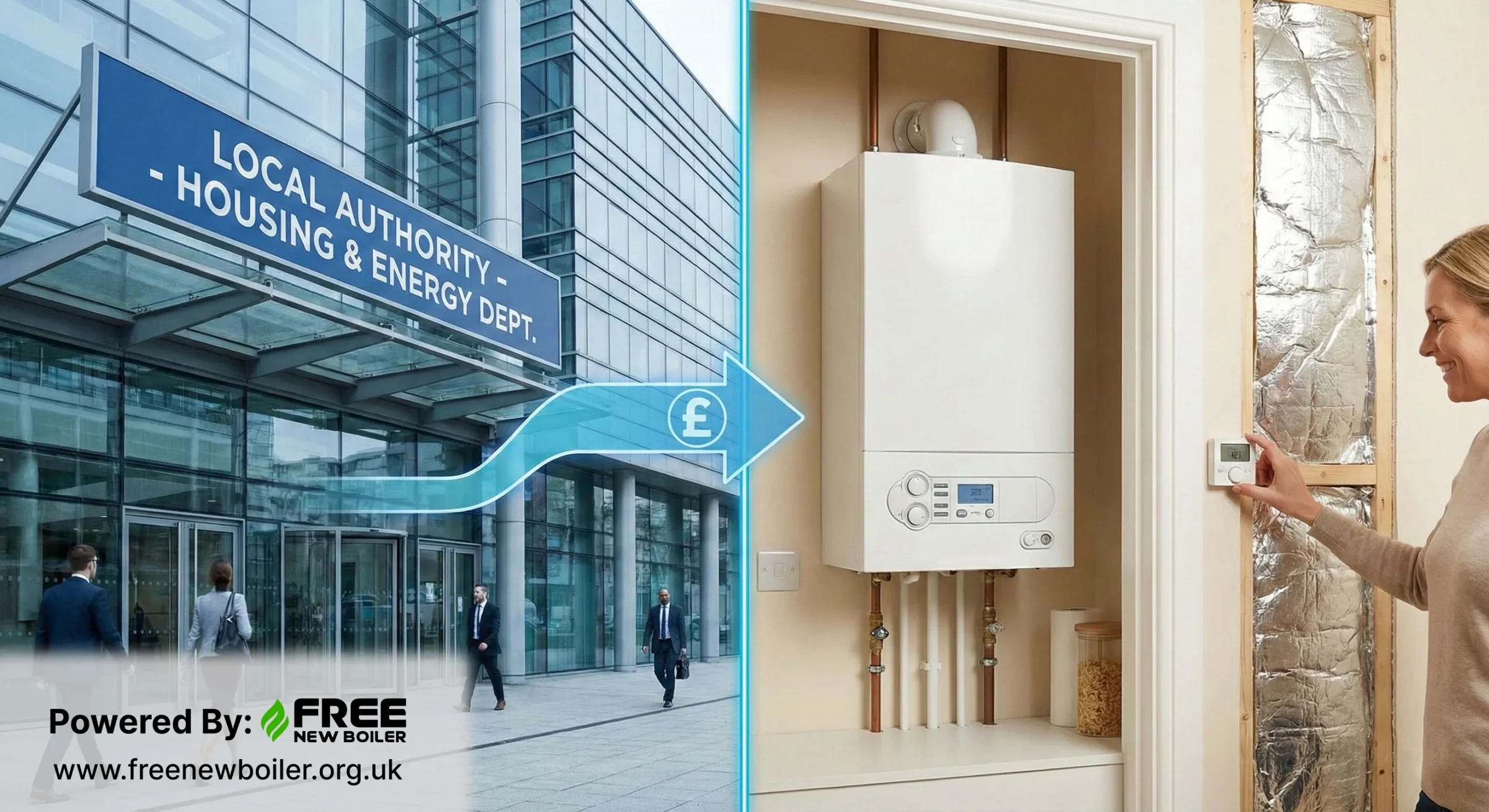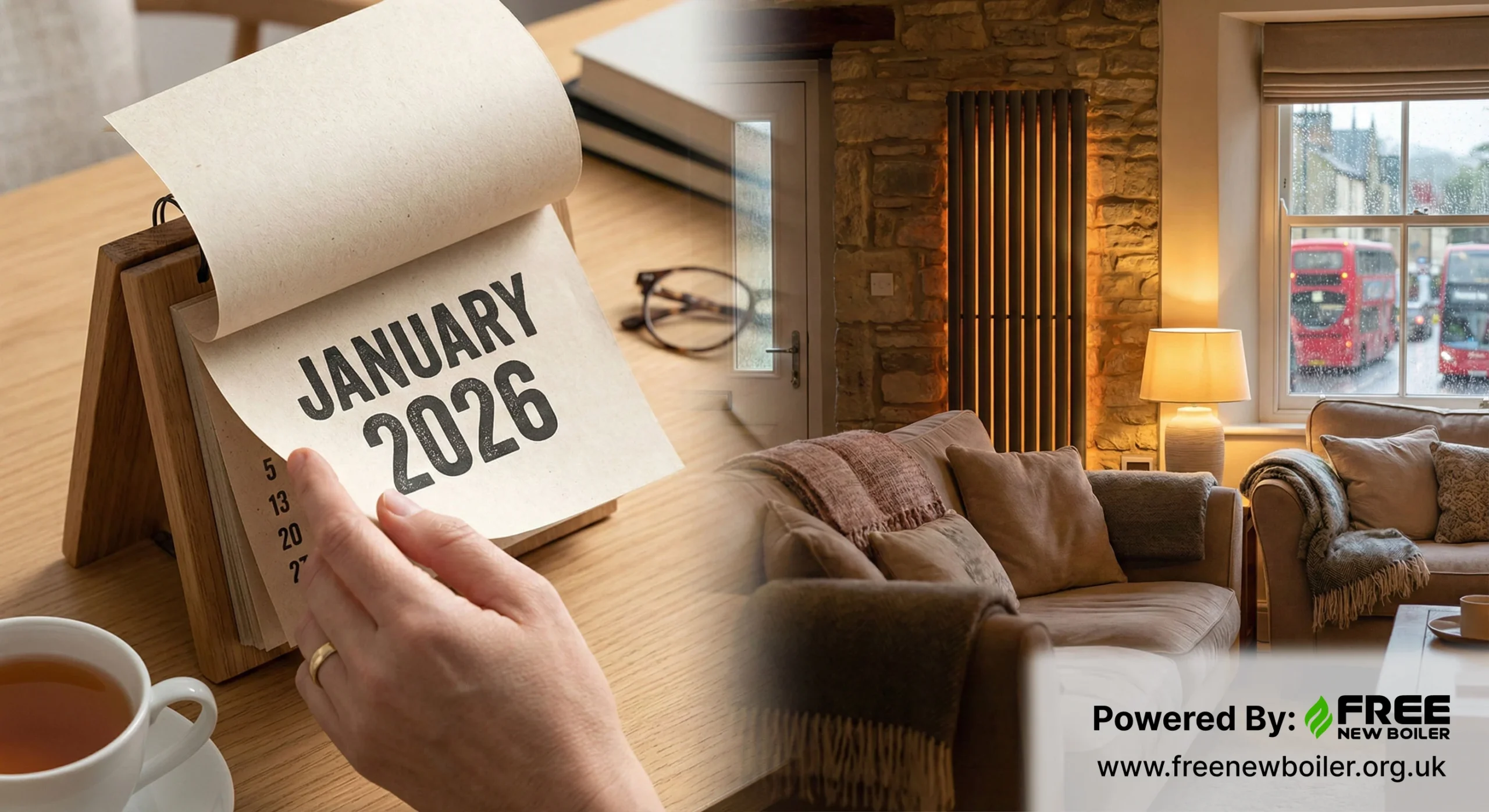Comparing Traditional Boilers With Modern, Efficient Models
Boilers are central to home heating in the UK, yet not all boilers are created equal. As energy costs continue to increase and environmental concerns become more pressing, homeowners are becoming increasingly concerned with the efficiency of their current heating systems. This comparison between traditional boilers and modern energy-efficient models will help shed some light on these differences, any long-term cost implications, and how government schemes such as boiler grants assist households in making this changeover.
What Are Traditional Boilers?
Traditional boilers (commonly referred to as conventional or regular) have long been the standard in many UK homes, featuring both a hot water cylinder and cold water storage tank for efficient functioning.
Key Characteristics of Solar Water heating Systems:
- Relying on gravity-fed systems
- Needing more space (due to tanks and cylinders)
- Take longer to heat water
- May be less energy-efficient
- Best Suited to homes with higher water usage with existing traditional plumbing.
Traditional boilers were effective during their time, yet due to their outdated designs, they now lose significant amounts of heat and consume significantly more energy than modern alternatives. Introduction to Modern and Efficient Boilers
Introduction to Modern, Efficient Boiler
Modern boilers—particularly condensing boilers—are constructed to maximize energy efficiency and lower emissions. Utilizing cutting-edge technology, modern models utilize more heat from the fuel they burn than older models, recycling wasted heat instead of expanding it through their flue.
Modern Boilers Offer Unique Advantages:
- Compact and wall-mounted designs
- Integrated controls and smart thermostats
- Can function as combi boilers (no need for storage tanks)
- High Energy Efficiency Ratings (typically A-rated)
- Lower carbon emissions
- Better compatibility with renewable energy sources.
The UK government’s ECO4 scheme and other boiler grant models emphasize replacing outdated systems with energy-saving models.
Efficiency Comparison: Old vs. New
| Feature | Traditional Boiler | Modern Efficient Boiler |
| Average Efficiency | 60–70% | 90–95% |
| Water Heating Time | Slow | Fast (especially combi models) |
| Maintenance Requirements | Higher | Lower |
| Installation Space Needed | More | Minimal |
| Carbon Emissions | Higher | Significantly reduced |
Energy Savings
Modern boilers can reduce heating bills by as much as 30% annually compared to older systems, and when combined with an ECO4 boiler grant, they offer rapid ROI through reduced bills and upfront cost savings.
Boiler Grants in This Transition
The UK government recognizes the necessity of modernizing heating systems nationwide to achieve net-zero goals. It offers grants for low-income, vulnerable and fuel-poor households to upgrade their boilers. One such grant, an ECO4 boiler grant, is targeted towards low-income, vulnerable and fuel-poor households as an incentive.
Key Benefits of ECO4 Boiler Grants:
- Covers 100% of the cost for boiler replacement
- Prioritises energy-efficient appliances
- Assists households on qualifying benefits
- Offers insulation upgrades alongside boiler replacements.
Through this scheme, households save money and contribute to a greener future by upgrading to energy-efficient models from traditional boilers—they can also contribute to creating an energy-efficient future by making this transition.
Case Study: Mrs. Hughes from Derby
Mrs. Hughes, a 74-year-old pensioner living alone and using an ineffective 30-year-old back boiler that frequently broke down, applied for and received approval to install a combi boiler through ECO4.
Results:
- Her monthly heating bills were reduced from PS145 to PS95 monthly.
- The boiler installation came at no personal expense
- Fully covered by the scheme.
Her experience illustrates the benefits of upgrading from an outdated system to one with modern capabilities–particularly when government grants cover all costs involved.
Boiler Upgrades may have negative environmental impacts. To find out more, view this environmental Impact report on boiler upgrades.
Environmental Impact of Boiler Upgrades
Older boilers tend to produce higher carbon dioxide levels due to inefficient combustion and heat loss, so upgrading to modern condensing models can significantly decrease a household’s carbon footprint. Stats:
- An average home can reduce CO2 emissions by 1.5 tons annually when installing modern condensing models.
- If a million homes were to upgrade, that would equate to taking 300,000 cars off the road.
Switching models is not only financially responsible but also environmentally friendly.
Long-Term Cost Comparison
While traditional boilers may initially appear cheaper to repair, their maintenance needs, inefficiency and increased utility bills are more expensive.
| Cost Area | Traditional Boiler | Modern Boiler with Grant |
| Initial Cost | £1,000–£2,000 | £0 (with grant coverage) |
| Annual Energy Costs | £1,200+ | £700–£850 |
| 10-Year Maintenance | £1,000+ | £500 or less |
| Total 10-Year Cost | £13,000+ | ~£7,000 or less |
These numbers demonstrate that modern boilers offer greater long-term value, especially when purchased through grants and subsidies.
Conclusion A Great Way to Increase Home Comfort and Sustainability
Switching to an efficient boiler from your traditional one is more than a technical decision; it has lasting effects on your comfort, finances and the environment. Since ECO4 grants are available to support such changes, there has never been a better time to make this transformational leap.
If you’re still using an older heating system, discover which models qualify for boiler grant grants and join thousands of UK homeowners who are switching to more innovative, warmer, and cost-effective heating options.



